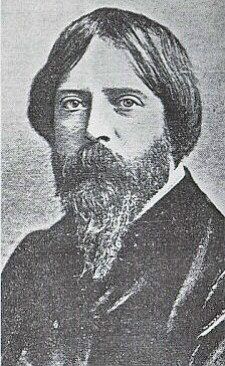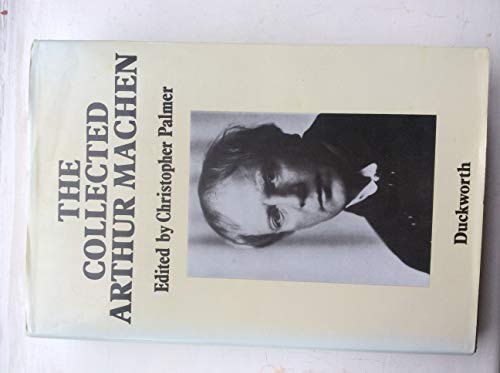In his second chapter, Reiter mentions several other stories from about the same time as "The Great God Pan," but I was surprised that he basically ignored "[The Novel of] The Black Seal" from
The Three Impostors, that well-known horror story of atavism. Here there's no surgery, but rather the patient tracing of the legends of a hidden race to a surviving, furtive race of troglodytes, matings between which and human beings are fertile; so modern humans and the abhorrent trogs are evidently the same, though the latter retain certain alarming abilities and habits that human beings have lost. This story is more purely a work of science fiction than "The Great God Pan." Of course, in its setting in
The Three Impostors, "The Black Seal" is just outlandish rigmarole, but it seems to me a bit too easy to dismiss it from further consideration on that ground.
The same is true for "[The Novel of] The White Powder," which I suggested in my 1991 article seems to shed light on Machen's conception of what happens in "The Great God Pan," with the sacrilegious sundering of what God has joined in the human being. Reiter will want to deal with this story should he expand his paper into a book someday, since as it is his paper could be criticized for attempting to make the evidence of this group of stories (the ones I've mentioned plus a couple of others, "The Shining Pyramid" and "The Red Hand," fit the thesis rather than being truly read out from them.
What do I think? I think it quite possible that Machen was, at this time, rebelling against the Christian faith that he'd grown up with, and that he enjoyed writing stories with shocking implications vis-a-vis the ordinary believer. It seems that throughout his life, indeed, he resented that variety of Christian morality that is commonly called "puritan." I would see Machen, at this time, as quite possibly more deliberately aggressive towards "conventional Christianity" as Machen conceived it, than Reiter perhaps does. Reiter notes the origin of the title
The Three Impostors in a possibly non-existent Renaissance-era satire of Moses, Christ, and Mohammed. Perhaps Machen derived some private gratification from the mockery, which, he'd have known, hardly anybody would recognize.
Support for the idea that Machen was, at this early stage in his career, hostile towards Christianity will be found in some pieces that hardly would be remembered if they weren't by a notable author, such as the "Double Return," etc.; such stories smirking at the "pious bourgeois" who is such a fond figure of fun for some young writers.
Yet Machen may, at times during this time, also have rejected the rather drab outlook of Victorian science, with its reductive materialism that had no real place for art or spirit. Writer says that Machen, at this time, have have "had the soul of a mystic but the mind of an atheist" (p. 86).
I wonder if Machen at this time wasn't hitting out on two fronts; as well as trying to sell fiction and simply to attain a high level of achievement in the realm of thrillerdom.
Readers of Reiter's paper may be interested in the amount of attention he gives to the Dyson-Phillipps frame.
Page 73 -- Machen poking at Dickens?? If that's going to be suggested, Reiter should note the very high regard indeed that Machen had or at least
came to have, as seen for example in his introduction to
A Handy Dickens, and which is reprinted in the Duckworth volume of thirty years or so ago.
As I said before, we would like to know more about Machen the man than we do. On the other hand if we knew more perhaps we would a little too readily "settle" questions of interpretation by going outside the literary work.
A further thought, to which I may recur: I like it that Reiter turns occasionally to note authors Machen certainly read or may have read but who are not read now, or not much, e.g. Sir Thomas Browne--
Literary Forbears of Arthur Machen
I will just say again that I think it may be found in due course that Coventry Patmore was an important influence on Machen, sooner or later.



